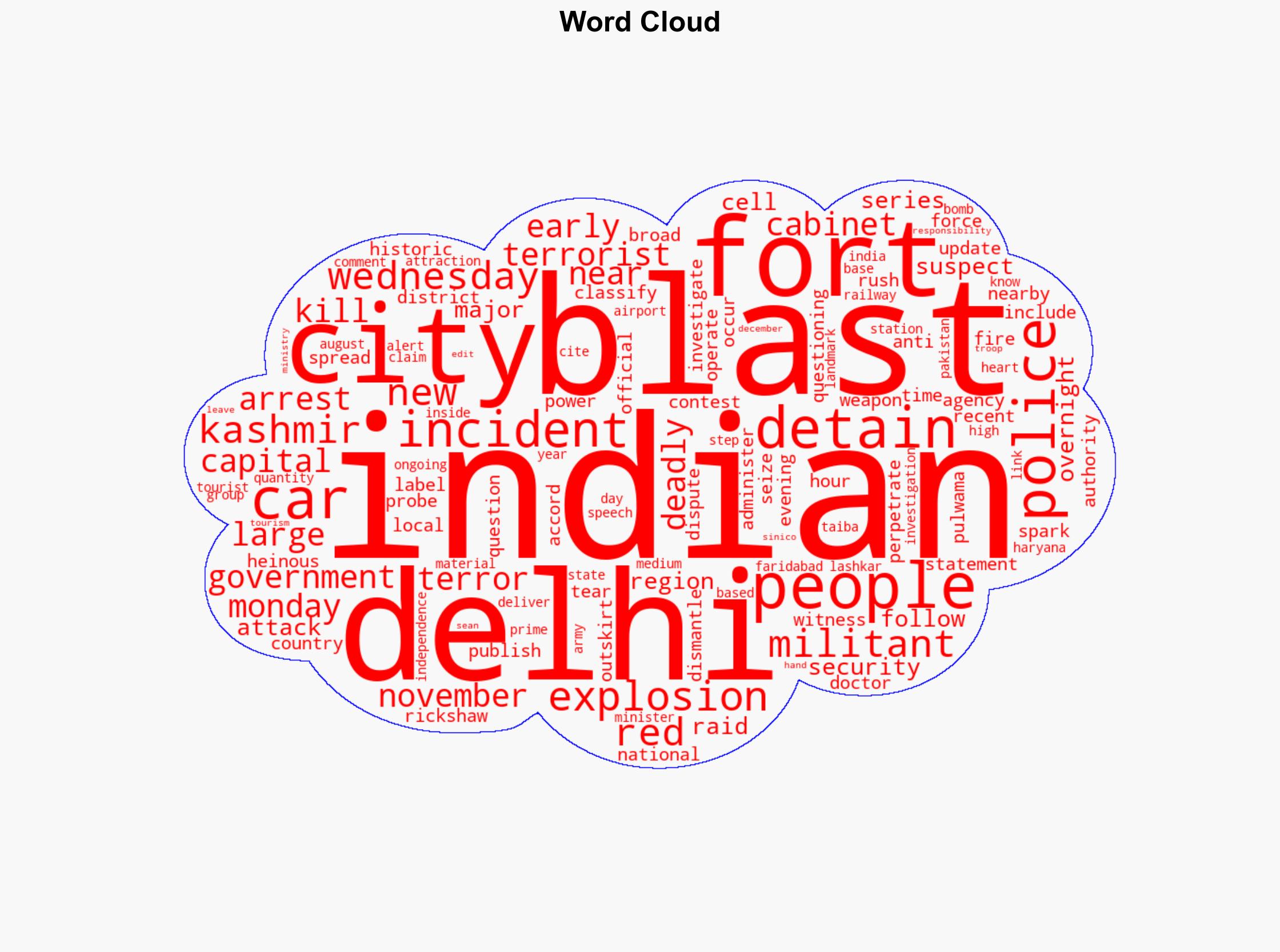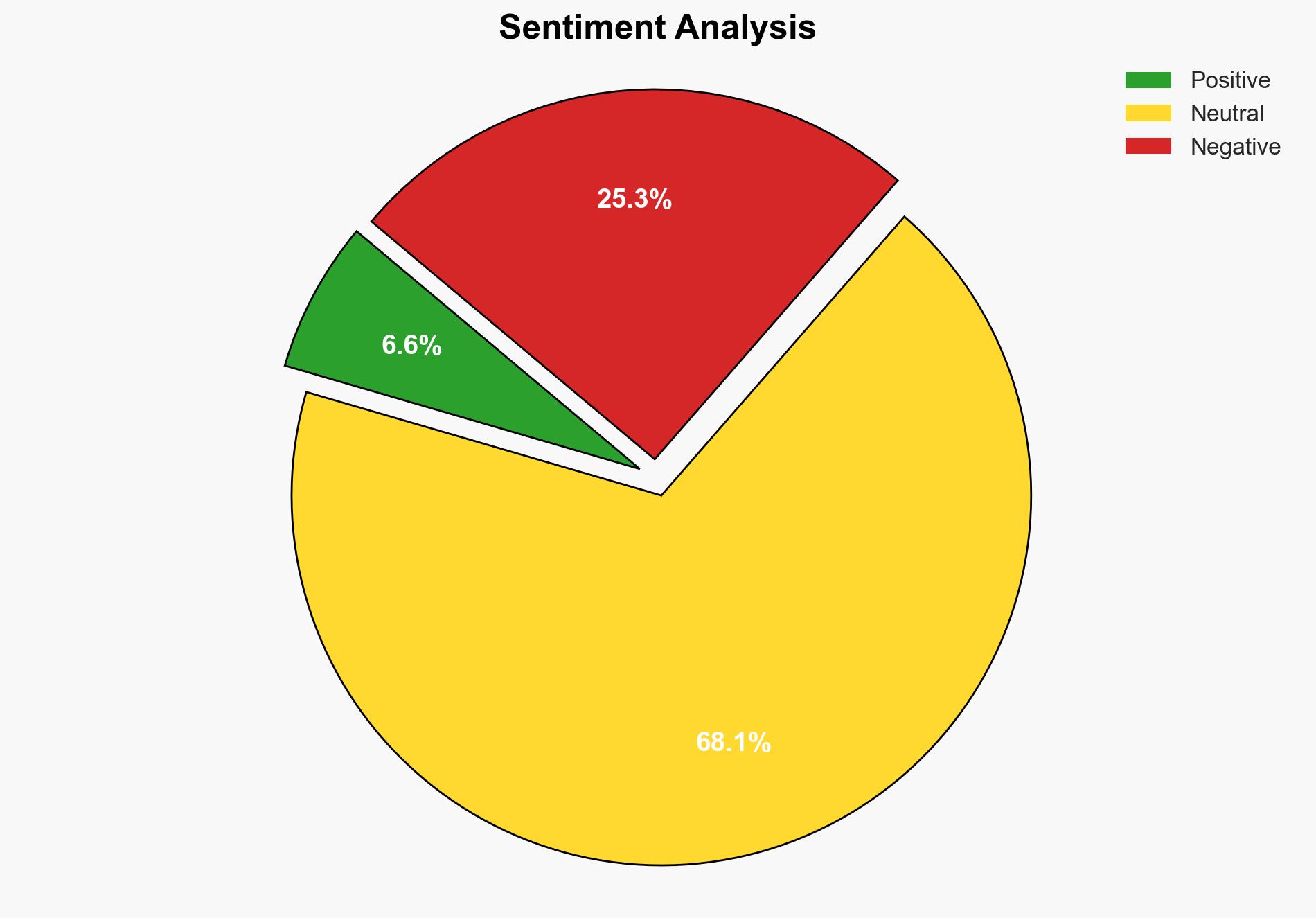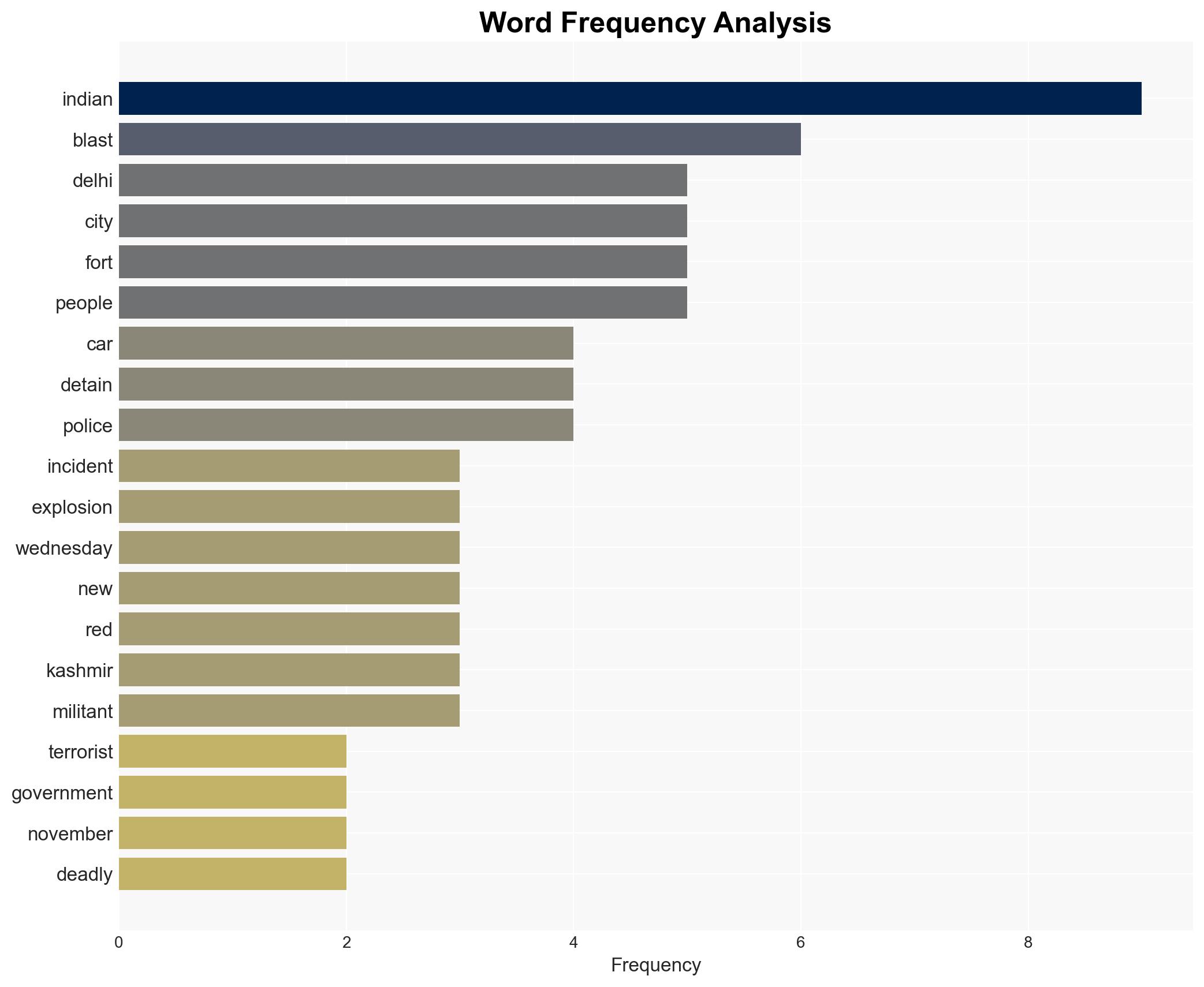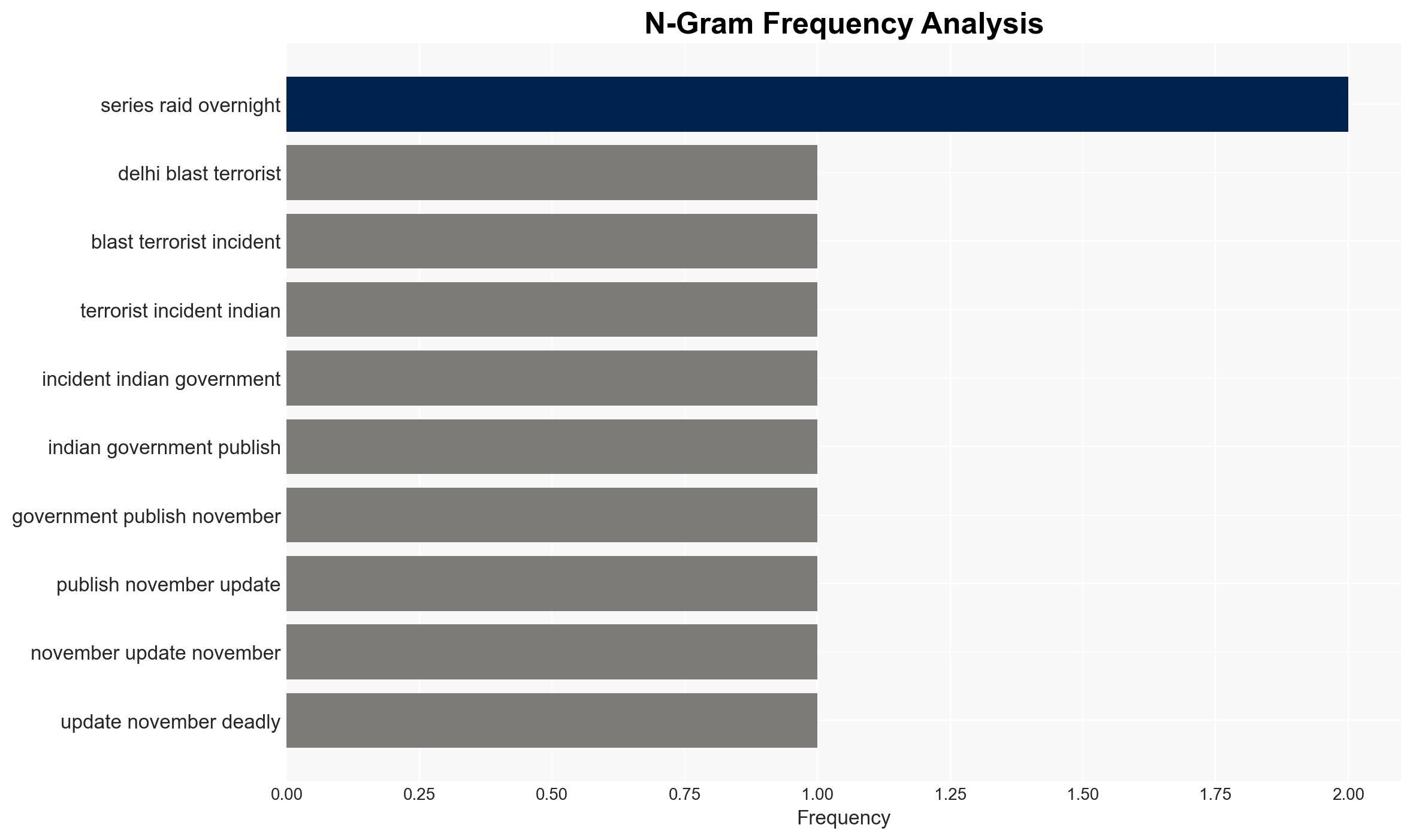Delhi blast a ‘terrorist incident’ Indian government says – DW (English)
Published on: 2025-11-12
AI-powered OSINT brief from verified open sources. Automated NLP signal extraction with human verification. See our Methodology and Why WorldWideWatchers.
Intelligence Report: Delhi blast a ‘terrorist incident’ Indian government says – DW (English)
1. BLUF (Bottom Line Up Front)
The Delhi car explosion has been classified as a terrorist incident by the Indian government, with initial investigations pointing towards involvement from militant groups possibly linked to the Kashmir region. The most supported hypothesis is that this incident is part of a broader strategy by anti-national forces to destabilize the region. Confidence Level: Moderate. Recommended action includes heightened security measures and diplomatic engagement with regional stakeholders to mitigate further threats.
2. Competing Hypotheses
Hypothesis 1: The Delhi blast is a coordinated terrorist attack by a militant group, possibly linked to the Kashmir conflict, aiming to create instability and draw international attention.
Hypothesis 2: The explosion is a result of local criminal activity or an accidental detonation, misclassified as a terrorist incident due to heightened political tensions.
Assessment: Hypothesis 1 is more likely given the historical context of militant activities in the region, the detainment of suspects in Kashmir, and the seizure of bomb-making materials. Hypothesis 2 is less supported due to the lack of evidence pointing to criminal motives or accidental causes.
3. Key Assumptions and Red Flags
Assumptions: It is assumed that the information from the Indian government and security agencies is accurate and not influenced by political motives. The classification as a terrorist incident assumes a deliberate act rather than an accident.
Red Flags: The rapid classification of the incident as terrorism could indicate a bias towards framing events within the context of regional conflict. The potential for misinformation or disinformation campaigns by interested parties should be considered.
4. Implications and Strategic Risks
The incident could escalate tensions between India and Pakistan, especially if links to Pakistan-based groups are confirmed. It may also lead to increased militarization in the Kashmir region, affecting civilian life and international relations. Economically, heightened security could impact tourism and business activities in major Indian cities.
5. Recommendations and Outlook
- Enhance intelligence-sharing mechanisms with regional and international partners to preempt further attacks.
- Strengthen security protocols at key infrastructure and public sites across major cities.
- Engage in diplomatic discussions with Pakistan to address cross-border terrorism concerns.
- Best-case scenario: Successful neutralization of the militant cell with no further incidents.
- Worst-case scenario: Escalation into broader regional conflict, impacting international relations and economic stability.
- Most-likely scenario: Continued sporadic incidents with increased security presence and diplomatic efforts to manage tensions.
6. Key Individuals and Entities
No specific individuals are named in the source text. Entities of interest include the Indian government, security agencies, and potentially the Lashkar-e-Taiba militant group.
7. Thematic Tags
Regional Focus: South Asia, Counterterrorism, Indo-Pakistani Relations, Kashmir Conflict
Structured Analytic Techniques Applied
- Causal Layered Analysis (CLA): Analyze events across surface happenings, systems, worldviews, and myths.
- Cross-Impact Simulation: Model ripple effects across neighboring states, conflicts, or economic dependencies.
- Scenario Generation: Explore divergent futures under varying assumptions to identify plausible paths.
Explore more:
Regional Focus Briefs ·
Daily Summary ·
Methodology





